Rohingya-Muslims-who-have-been-living-in-the-temporary-camps-since-communal-violence-in-2012-are-seen-at-Thet-Ke-Pyin-camp-near-Sittwe-capital-of-Myanmars-western-Rakhine-state-on-Sept.-7-2016..jpg" />
Rohingya Muslims, who have been living in temporary camps since communal violence in 2012, are seen at Thet Ke Pyin camp near Sittwe, Rakhine State, on Sept. 7, 2016.
Yangon, Myanmar, 11 Rabi’ul Awwal 1438/11 December 2016 (MINA) – Authorities have extended a nighttime curfew for two months in a conflict-torn area on Myanmar’s western border with Bangladesh.
Also Read: 1,000th Western Military Supply Plane Lands in Israel Since Gaza War
The dusk-to-dawn act had been in place since armed men attacked police stations Oct. 9 in the district of Maungdaw in western Rakhine State, where a partial curfew (11 p.m. to 4 a.m.) already existed following communal violence in mid-2012.
In the weeks following the Oct. 9 attacks, Rohingya advocacy groups claim around 400 Rohingya have been killed, while Myanmar says 93 people — 17 soldiers and 76 alleged “attackers” (including six who reportedly died during interrogation) — have been killed.
Public gatherings of more than five people have also been banned in the area.
On Saturday, the State Counselor’s Office Information Committee announced the extension of the curfew (7 p.m. to 6 a.m.) in an area predominately occupied by members of the country’s stateless Rohingya Muslim minority.
Also Read: Trump to Meet with NYC Mayor-Elect Mamdani at White House on Friday
Regional government spokesperson Min Aung told Anadolu Agency that despite the curfew, people are still able to move freely around town, and attend areas such as mosques without restraint.
“And this order is in effect for both communities. Not only one,” he said by phone Saturday.
In mid-2012, communal violence broke out in Rakhine between ethnic Rakhine Buddhists and Rohingya — described by the United Nations as among the most persecuted minority groups worldwide.
The violence left around 57 Muslims and 31 Buddhists dead, some 100,000 people (primarily Rohingya) displaced in camps and more than 2,500 houses razed — most of which belonged to Rohingya.
Also Read: Syria, Jordan Condemn Netanyahu’s Visit to Occupied Syrian Buffer Zone
The statement from the State Counselor’s Office added that at least 575 people have been detained on suspension of involvement in the attacks in the area.
Of the 575 who have been detained, 88 have been charged, 10 released, six died during questioning, one has been released on bail and around 470 are still being questioned.
The statement did not provide any further details.
Also Read: UNIFIL Reports Over 7,300 Israeli Violations of Lebanese Airspace Since Ceasefire
The most persecuted people
A law passed in Myanmar in 1982 denies Rohingya — many of whom have lived in Myanmar for generations — citizenship, making them stateless.
The law denies Rohingya rights to Myanmar nationality, removes their freedom of movement, access to education and services, and allows arbitrary confiscation of property.
Also Read: Report Exposes Canada’s Role as ‘Weapons Transit Corridor’ for Israel
Myanmar nationalists have since taken to referring to the Rohingya — which the United Nations calls one of the most persecuted people in the world — as Bengali, which suggests they are not Myanmar nationals but interlopers from neighboring Bangladesh.
Rohingya have fled Myanmar in droves for decades, with a new wave of migrations occurring since mid-2012 after communal violence broke out. (T/R07/R01)
Mi’raj Islamic News Agency (MINA)
Also Read: Trump Designates Saudi Arabia as Major Non-NATO Ally in Historic Defense Pact





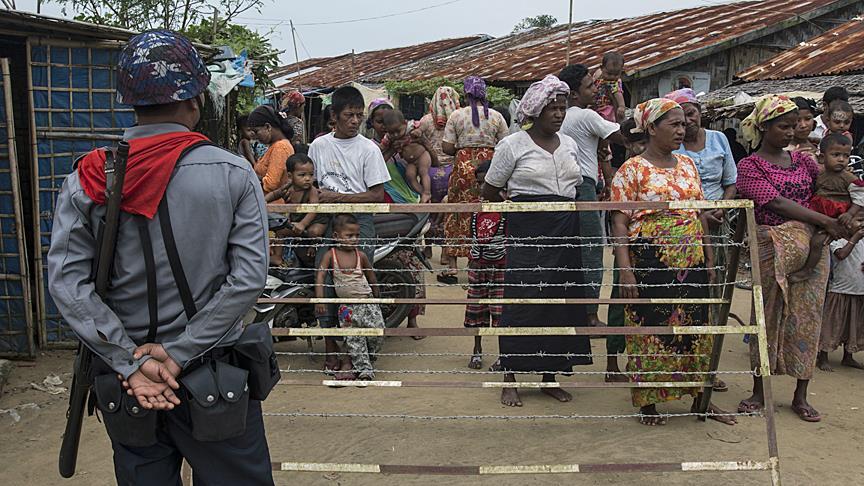



![Israeli tanks and APC’s gather by the Israeli – Lebanese border. Amid Israel’s escalating campaign against Hezbollah in Lebanon on September 30, 2024. [Erik Marmor/Getty Images]](https://en.minanews.net/wp-content/uploads/2024/10/IMG_20241001_203226-300x197.jpg)




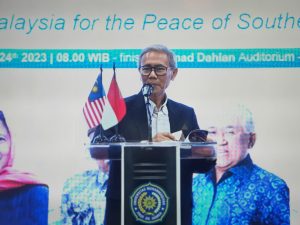

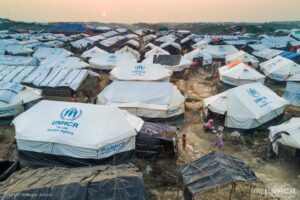
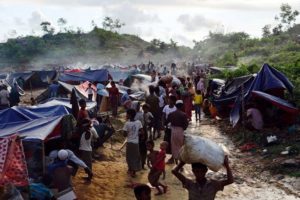
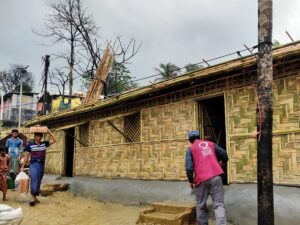
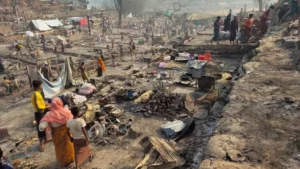











 Mina Indonesia
Mina Indonesia Mina Arabic
Mina Arabic